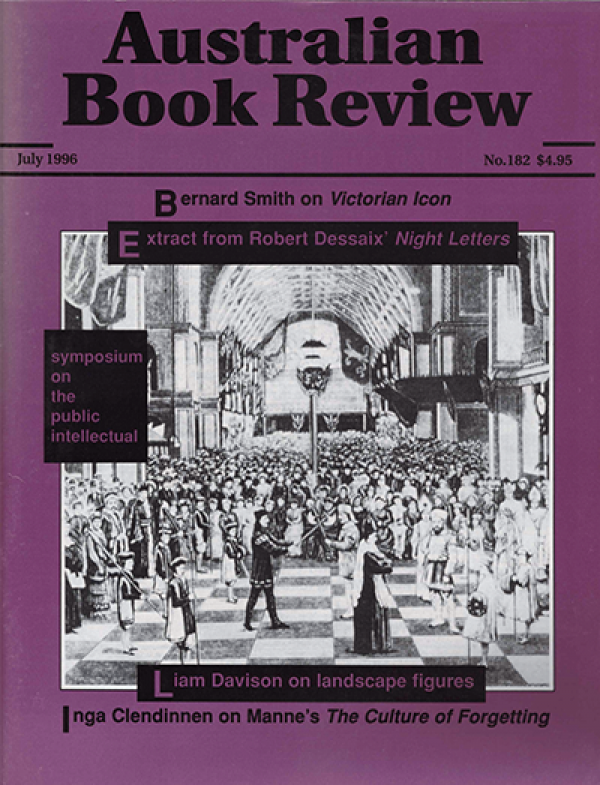1996 (57)
Children categories

February–March 1996, no. 178 (1)
Welcome to the February-March 1996 issue of Australian Book Review!

December 1996–January 1997, no. 187 (2)
Welcome to the December 1996-January 1997 issue of Australian Book Review.

November 1996, no. 186 (0)
Welcome to the November 1996 issue of Australian Book Review.
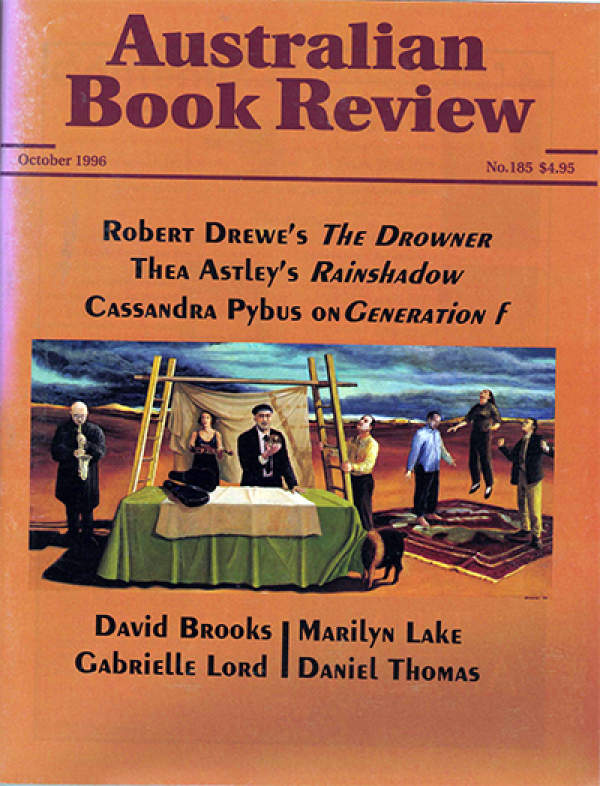
October 1996, no. 185 (0)
Welcome to the October 1996 issue of Australian Book Review.

September 1996, no. 184 (0)
Welcome to the September 1996 issue of Australian Book Review.
Bev Roberts reviews 5 books of poetry
Written by Bev RobertsBrowsing through some of the late 1995 offerings from small poetry presses was a case of moving between the dark and light in both themes and styles.
Decidedly on the dark side were two chapbooks from Shoestring Press in Nottingham, giving English publication to the work of two oddly matched Australian poets, Dimitris Tsaloumas and Tim Thorne.
Tsaloumas’ poetry is characterised by gravitas and a grand universality of theme and has sometimes seemed exotic or anachronistic in the less formal, more colloquial context of Australian poetry. Interesting that his English publisher felt it necessary to provide a brief Foreword to Six Improvisations on the River (Shoestring Press, $7.25 pb, 20 pp), offering a cautionary note:
[Tsalomas’] mode of writing may fret British readers conditioned to expect a less composed, a rawer poetry, one attempting to recreate the force of immediate experience.
Additional Info
- Free Article No
- Contents Category Poetry
- Review Article Yes
- Show Author Link Yes
- Show Byline Yes
- Article Title Poetry Shorts
- Online Only No
-
Custom Highlight Text
Browsing through some of the late 1995 offerings from small poetry presses was a case of moving between the dark and light in both themes and styles.
Decidedly on the dark side were two chapbooks from Shoestring Press in Nottingham, giving English publication to the work of two oddly matched Australian poets, Dimitris Tsaloumas and Tim Thorne.
Tsaloumas’ poetry is characterised by gravitas and a grand universality of theme and has sometimes seemed exotic or anachronistic in the less formal, more colloquial context of Australian poetry. Interesting that his English publisher felt it necessary to provide a brief Foreword to Six Improvisations on the River, offering a cautionary note:
[Tsalomas’] mode of writing may fret British readers conditioned to expect a less composed, a rawer poetry, one attempting to recreate the force of immediate experience.
- Display Review Rating No
Judy Smallman reviews 4 magazines
Written by Judy SmallmanOtis Rush #11
Little Esther Books and SA Pub. Ventures & Futures. PO 2l, North Adelaide 5006, $40 for four Issues, ISSN: 0819 7288
One reward for editing, publishing and keeping afloat a small magazine must be that you can pay homage to your heroes and can even claim a good chunk of magazine for yourself. Editor/publisher Ken Bolton and poet John Jenkins are obviously having fun with ‘Gwendolyn Windswept’, their ongoing verse novella, of which thirty pages appear in issue 11. Bolton follows this with forty pages of his art commentary, covering a year’s viewing of exhibitions in Adelaide.
Otis Rush cultivates an image of being for ‘the independent, the hip, the wigged-out & true’. It has been going since 1987 and has a loyal following. Apart from the presence of Bolton, the new writing in this magazine, mainly poetry, is experimental in form. Contributions from far afield include the writing of Dada-inspired Nakahara Chuya, who died in 1937, and an extract from Soh Sakon’ s ‘Mother Burning’ published in 1967 (both translated from Japanese by Leith Morton).
Despite the pale print, issue 11 looks terrific. Drawings by Micky Allan are featured, and the poetry throughout is given plenty of room to breathe.
The UTS Review: Cultural Studies and New Writing
Volume 1. No. 2, Nov. 1995, Faculty of Humanities & Social Sciences, UTS, PO 123 Broadway, NSW 2007, Biannual, $15 per issue ISSN: 1323 1677
According to the editors, much cultural studies writing published today is written for an international (British and American) readership. The UTS Review came into being partly to help offset this and to provide a space for writing on culture that will attract critical discussion in Australia. This journal is regional, with an emphasis on communities within Australia and around the Pacific and Indian oceans.
The opening article by Denis Byrne is seductive. The famous Return of MacArthur is interwoven with the history of Intramuros, a 16th century Spanish colonial enclave in Manilla. There are resonances between Byrne’s piece and the next, by Brian Massumi, who also examines media representation of war.
Writing styles range from lyrical to academic, and topics such as globalization, multiculturalism and postcolonialism weigh in equally with writing on aspects of popular culture, as in Jean Duruz’s analysis of fashion scenarios told to her by women.
The book reviews section covers relevant new titles and broadens to include The First Stone. One notable aspect of this new journal is the linking of literary and theoretical genres by the inclusion of a piece of creative writing. Another is that dialogue is encouraged through a Responses section, where enough space is given for ideas and arguments to be developed.
Viewpoint: On Books for Young Adults
Vol 3, No. 4, Summer 1995, Faculty of Education, Uni. of Melbourne, Parkville 3052, $36 for four issues, ISSN: l039 2858
Two recurring questions in Viewpoint are what constitutes Young Adult Literature and how old are the readers of these books. In the current issue the age range is stretched, at one end by a picture book, The Story of Rosy Dock, and at the other by Darren Williams’ 1994 Vogel winner Swimming in Silk.
Viewpoint is a well-organized magazine for teachers of literature in secondary schools, and for librarians. It is serious-looking and substantial compared to the more commercial Magpies, which probably hooks in a few parents and even the occasional young adult as well.
In place of the usual forum, the summer issue runs three consecutive interviews with YA authors. A series of book reviews follow, with two perspectives offered on The Third Day. The Frost by John Marsden and on Sleeping Dogs by Sonia Hartnett. A comprehensive section of shorter reviews appears towards the back. Regular features include a reconsideration of a book published in previous years, and examine the reading habits of young people.
Contributors are mostly teachers or authors but one insightful article on crime fiction for younger readers is by Olivia Craze, a Year 12 student.
Aurealis: Australian Fantasy & Science Fiction: #15
Chimaera Publications, PO 2164, Mt Waverley 3149, $24.00 for four issues, ISSN: l035 1205
Aurealis is geared to mass-market sales (it has US and UK distributors) and has a preoccupation with finding the right mix – content mix, that is. This issue dispenses with the long article, increases the reviews section and adds the Australian SF Writers’ News. An Input questionnaire on the back page ensures that the mix will be fiddled with for some time yet.
This slim magazine is now perfect – bound and ready for bookshop shelves. The cover illustration is effective; it shows a spaceman riding a large flightless bird through the jungle. Inside the magazine are five conventional science fiction and fantasy short stories.
The news section is of more interest. It lists local and overseas markets for SF and fantasy and gives a step-by-step account of submitting a manuscript on the Net. Before you reach the Input page, a taste for sifting through statistical information is revealed in Market Response Times, a table showing how many weeks various publications take to respond to submissions from authors.
Additional Info
- Free Article No
- Review Article Yes
- Show Author Link Yes
- Show Byline Yes
- Article Title Around the Magazines
- Online Only No
-
Custom Highlight Text
Otis Rush #11
Little Esther Books and SA Pub. Ventures & Futures. PO 2l, North Adelaide 5006, $40 for four Issues, ISSN: 0819 7288
One reward for editing, publishing and keeping afloat a small magazine must be that you can pay homage to your heroes and can even claim a good chunk of magazine for yourself. Editor/publisher Ken Bolton and poet John Jenkins are obviously having fun with ‘Gwendolyn Windswept’, their ongoing verse novella, of which thirty pages appear in issue 11. Bolton follows this with forty pages of his art commentary, covering a year’s viewing of exhibitions in Adelaide.
Otis Rush cultivates an image of being for ‘the independent, the hip, the wigged-out & true’. It has been going since 1987 and has a loyal following. Apart from the presence of Bolton, the new writing in this magazine, mainly poetry, is experimental in form. Contributions from far afield include the writing of Dada-inspired Nakahara Chuya, who died in 1937, and an extract from Soh Sakon’ s ‘Mother Burning’ published in 1967 (both translated from Japanese by Leith Morton).
- Display Review Rating No
Chris Feik reviews 4 books
Written by Chris FeikSparrow’s Fall
By Terry Lane
Pan, $12.95 pb, 52l pp
‘What I wanted to do was to write a story that would confront me with a number of incidents requiring moral, philosophical or theological reflection,’ Terry Lane writes in the postscript to this novel. There’s something a little unfashionable about such an aim: most contemporary fiction markets itself in more secular terms. But Lane was once a religious minister, prior to his career in broadcasting, and this book testifies to that history. It is a novel that returns obsessively to questions of spiritual crisis and dissent. From the perspective of the dissenter, it targets public morality, and doctrinaire religious observance. From that of a sceptic, it asks how senseless disasters can be squared with a divine plan.
Describing Sparrow’s Fall in such a way, though, risks misrepresenting what is more apparently a wartime adventure story and romance. The protagonist, Gerry Goodman, tells how he came to enlist to fight the Hun, and of his impassioned pursuit of Helga, his German love. The prose is plain but effective, the perspective masculine and middle-aged. The story’s moral reflections emerge from the adventures it describes. In this way Sparrow’s Fall offers both secular entertainment and spiritual dilemmas to its readers.
Great Australian Urban Myths
By Graham Seal
Harper Collins, $14.95 pb 175 pp
Urban myths are defined in part by their familiarity. Hence, I found myself nodding in recognition as I leafed through this selection. I had heard more than once of The Hairy Hitchhiker aka The Lady with Hairy Arms. The stories of kid(ney )napping reminded me that, when overseas, one’s internal organs must be guarded constantly. Less familiar were accounts of ‘skinrunners,’ of whom the author writes:
These are usually naked humans who are seen running beside automobiles at far greater speeds than we are normally capable of. Intriguing mention is made of the Nullarbor Nymph.
For the most part, such legends are neither urban nor Australian. As they circulate they are adapted to local conditions. They deal with communal anxieties in everyday settings: contamination, bodily invasion, embarrassing disclosures and alien dangers. The compiler of the collection, a folklorist, provides details of alternate versions, interpretation and historical background. The effect is somewhat demystifying – perhaps it’s more fun to hear urban myths recounted singly, in an atmosphere of breathless authenticity. There is no doubt, however, that certain of these stories, concerning fingers in meat-pies or nesting spiders, will evoke a pleasurable shiver wherever they are encountered.
Unnatural Order
By Liz Porter
Mandarin, $15.95 pb, 457 pp
Unnatural Order is a Story of Obsession, its cover announces. Combining thriller and romance, it promises to be a page-turner of the first order. The narrative follows Caroline, an Australian journalist attached to her independence. One summer she finds herself courted by Karl, whose insistent, charming attentions lead her to take up his invitation to live with him in Germany. Karl can be very persuasive, as typified here:
Sleepily Caroline abandoned herself to his attentions, breathing deeply as the stirrings of desire flared slowly under Karl’ s persistent fingers.
Once installed in Karl’ s apartment, however, everything changes. Karl wants a hausfrau, and Caroline finds his rulebound approach increasingly oppressive. Counterpointing this relationship drama is Caroline’s developing obsession with Germany’s Nazi past. Her journalistic inquiries lead her on the track of war criminals, and Germany’s uneasy relationship with its history is exposed to her inquisitive gaze.
As the story unfolds, Karl’s character remains strictly cardboard, just as the ‘exploration’ of Germany merely reproduces cliches. If these cliches were compelling, though, all would be forgiven. Alas, no – rather than beings wept up by this narrative of obsession, my experience was of being inexorably dragged into someone else’s tediously dysfunctional relationship. Unnatural Order lacks the ingredients which turn pages: passion and intrigue.
Resilience: Stories of A Family Therapist
By Moshe & Tesse Lang
Mandarin, $14.95 pb, 258 pp
‘Story telling is healing,’ Moshe Lang suggests at the beginning of this collection, because stories give shape and coherence to experience. Along with their therapeutic benefits, stories have an aesthetic advantage:
The story is a form which captures the uniqueness of the encounter. To describe it as a ‘case presentation’ is to lose that uniqueness. As a story it is engaging and memorable.
The collection is as good as its word: its stories of ‘people and problems’ from Lang’s work as a therapist are indeed often engaging and memorable. Families are described vividly: a child’s refusal to attend school, for example, shows up larger issues of family interaction. Focusing these tangled networks, family therapy finds its justification.
Perhaps, though, the story format also risks removing the rough edges – the work and the agony – from the situations it depicts, and turning them into neat parcels. Some stories verge on the anodyne. But others, like those concerning Holocaust survivors, powerfully resist this possibility. Such stories evoke the particular experience, without imposing the finished form of a ‘case’. They show how silences live on, and what is at stake in telling of the past. The unfinished, haunting quality of these stories makes the collection memorable.
Additional Info
- Free Article No
- Review Article Yes
- Show Author Link Yes
- Show Byline Yes
- Article Title Shorts
- Online Only No
-
Custom Highlight Text
‘What I wanted to do was to write a story that would confront me with a number of incidents requiring moral, philosophical or theological reflection,’ Terry Lane writes in the postscript to this novel. There’s something a little unfashionable about such an aim: most contemporary fiction markets itself in more secular terms. But Lane was once a religious minister, prior to his career in broadcasting, and this book testifies to that history. It is a novel that returns obsessively to questions of spiritual crisis and dissent. From the perspective of the dissenter, it targets public morality, and doctrinaire religious observance. From that of a sceptic, it asks how senseless disasters can be squared with a divine plan.
- Display Review Rating No
Michael Veitch reviews ‘Composing Venus’ by Elaine Acworth and ‘The Family’ by Jill Shearer
Written by Michael VeitchPlays read in books can be nearly perfect works of creativity. The acting is superb, the sets and lighting are imaginative and breathtaking and the direction somehow manages to extract every subtlety from the text without ever becoming overbearing (and I haven’t even mentioned the costumes). In fact, some plays read so well on the page that that is where they deserve to remain without ever being made to endure the harsh reality of an actual theatrical production.
Composing Venus by Elaine Acworth revolves around three generations of women living in an Outback Queensland town and the forces of time and emotion that shape and change their lives. Set at the rear of one of those big stilt-raised Queensland houses, the play opens on a night in 1957 with a radio broadcast announcing that the Russian satellite Sputnik is set to pass through the night sky over Charters Towers.
Additional Info
- Free Article No
- Contents Category Theatre
- Review Article Yes
- Show Author Link Yes
- Show Byline Yes
- Article Title And Two More Plays by Women
- Online Only No
-
Custom Highlight Text
Plays read in books can be nearly perfect works of creativity. The acting is superb, the sets and lighting are imaginative and breathtaking and the direction somehow manages to extract every subtlety from the text without ever becoming overbearing (and I haven’t even mentioned the costumes). In fact, some plays read so well on the page that that is where they deserve to remain without ever being made to endure the harsh reality of an actual theatrical production.
Composing Venus by Elaine Acworth revolves around three generations of women living in an Outback Queensland town and the forces of time and emotion that shape and change their lives. Set at the rear of one of those big stilt-raised Queensland houses, the play opens on a night in 1957 with a radio broadcast announcing that the Russian satellite Sputnik is set to pass through the night sky over Charters Towers.
- Book 1 Title Composing Venus
- Book Author Elaine Acworth
- Book 1 Biblio Currency, $14.95 pb, 88 pp
- Book 1 Author Type Author
-
Book 1 Cover Small (400 x 600)
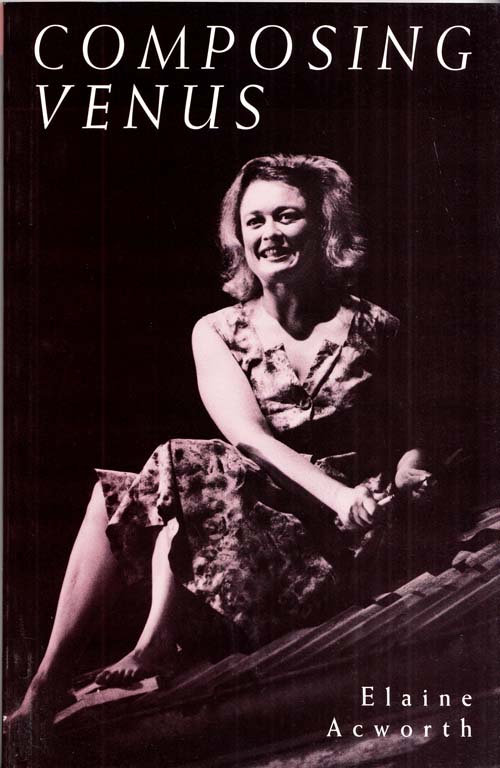
-
Book 1 Cover (800 x 1200)

- Book 2 Title The Family
- Book 2 Author Jill Shearer
- Book 2 Biblio Currency, $14.95 pb, 80 pp
- Book 2 Author Type Author
-
Book 2 Cover Small (400 x 600)
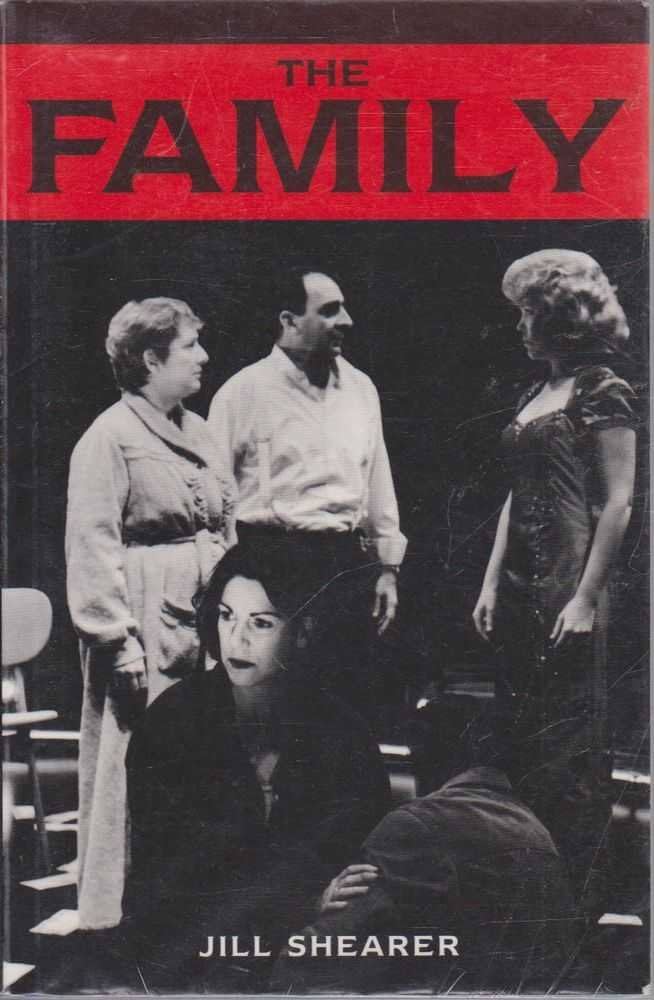
-
Book 2 Cover (800 x 1200)

- Display Review Rating No
Paula Amad reviews ‘A Guide To Gay and Lesbian Writing in Australia’ by Michael Hurley, ‘In With The Tide' by Michael Noonan, and ‘Footprints Across Our Land’ edited by Jordan Crugnale
Written by Paula AmadThe first national guide and only major reference work on gay, lesbian, queer and transgender writing has a tall order to fill. Thanks to Hurley’s practical and sophisticated direction the guide is geared to perform to a demanding audience of both specialist and general interest.
The dead-end problems of producing such a historically destined resource – to include or not to include – are skilfully manoeuvred. Hurley’s introduction acknowledges the limits of such a publication while ushering us into the creative research possibilities of a guide which balances the importance of its inaugural mission with a healthy open-ended approach to the history it is making.
Additional Info
- Free Article No
- Review Article Yes
- Show Author Link Yes
- Show Byline Yes
- Article Title Shorts
- Online Only No
-
Custom Highlight Text
The first national guide and only major reference work on gay, lesbian, queer and transgender writing has a tall order to fill. Thanks to Hurley’s practical and sophisticated direction the guide is geared to perform to a demanding audience of both specialist and general interest.
The dead-end problems of producing such a historically destined resource – to include or not to include – are skilfully manoeuvred. Hurley’s introduction acknowledges the limits of such a publication while ushering us into the creative research possibilities of a guide which balances the importance of its inaugural mission with a healthy open-ended approach to the history it is making.
- Book 1 Title A Guide to Gay and Lesbian Writing in Australia
- Book Author Michael Hurley
- Book 1 Biblio Allen & Unwin, $29.95 pb, 298 pp
- Book 1 Author Type Author
-
Book 1 Cover Small (400 x 600)
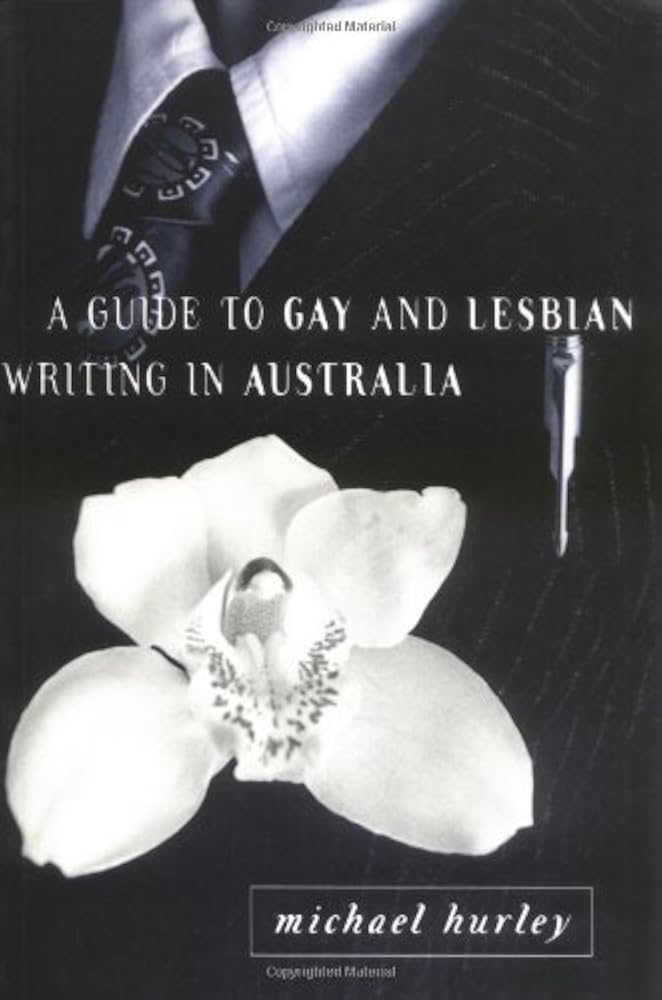
-
Book 1 Cover (800 x 1200)

- Book 2 Title In With The Tide
- Book 2 Subtitle Memoirs of a Storyteller
- Book 2 Author Michael Noonan
- Book 2 Biblio UQP, $24.95 pb, 300 pp
- Book 2 Author Type Author
-
Book 2 Cover Small (400 x 600)
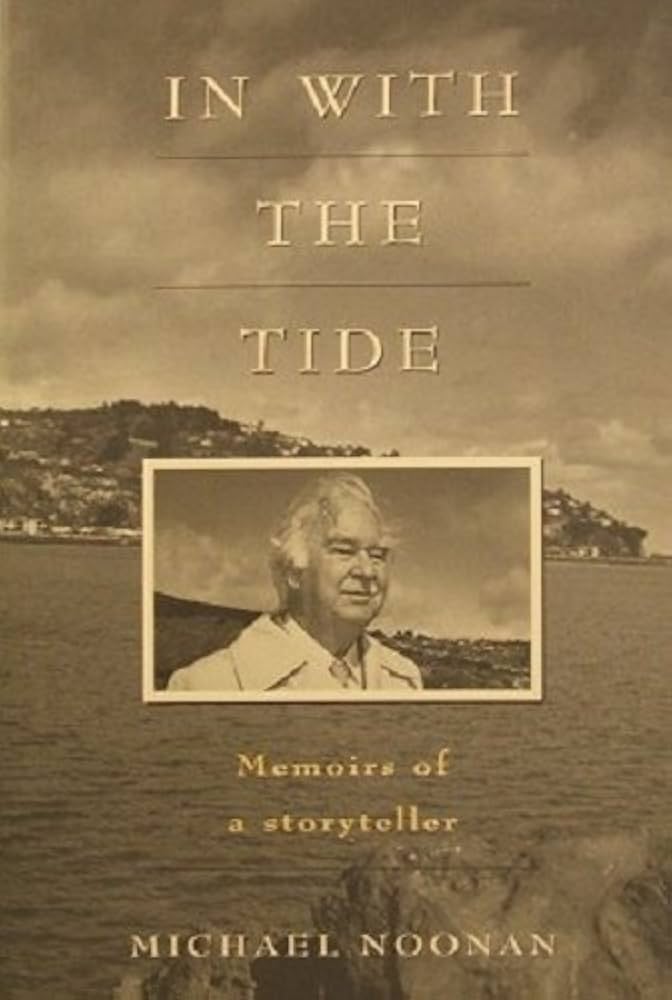
-
Book 2 Cover (800 x 1200)

- Book 3 Title Footprints Across Our Land
- Book 3 Subtitle Short Stories by Senior Western Desert Women
- Book 3 Author Jordan Crugnale
- Book 3 Biblio Magabala Books, $29.95 pb, 201 pp
- Book 3 Author Type Editor
-
Book 3 Cover Small (400 x 600)
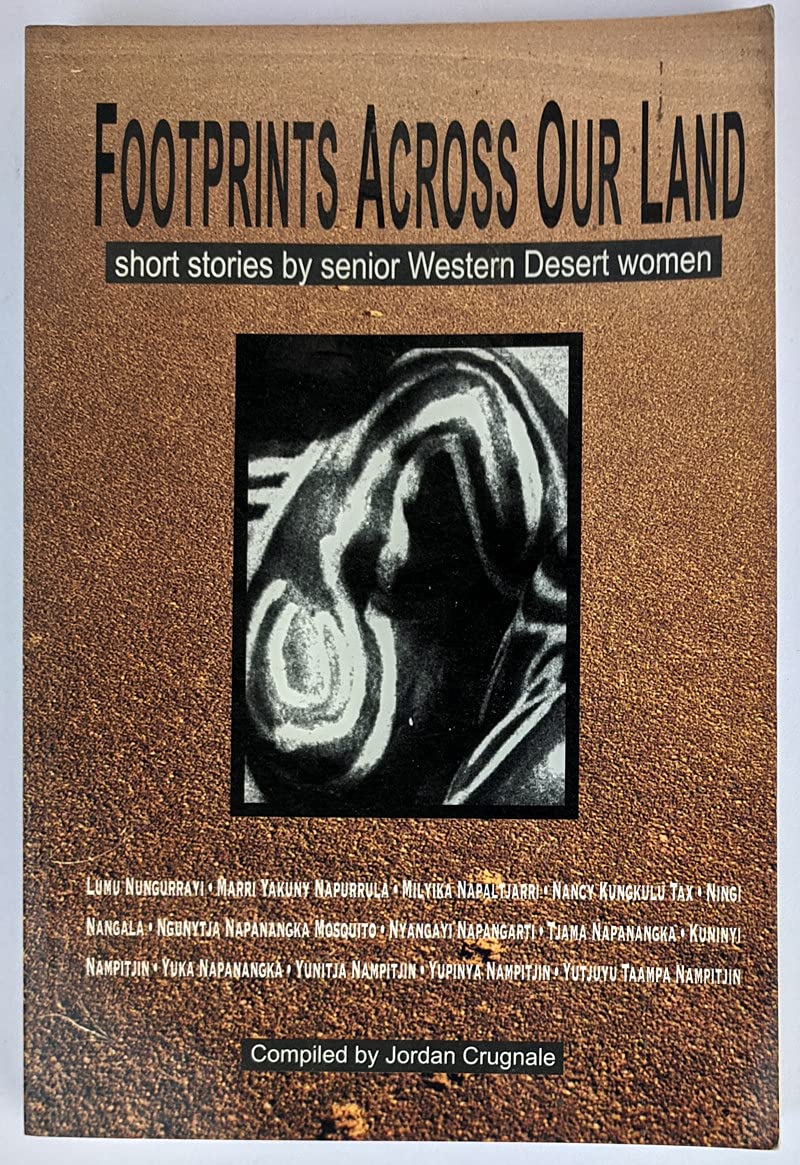
-
Book 3 Cover (800 x 1200)

- Display Review Rating No
Katharine England reviews ‘Night Surfing’ by Fiona Capp and ‘Dirt’ by Catherine Ford
Written by Katharine EnglandFiona Capp’s accomplished first novel is pungent with sea-salt and urgent with the relentless momentum of the waves. It opens with the image of tsunami, a freak wave that grows from a shudder in the seabed to a wall of ocean which engulfs the landscape of the novel, an image which is recalled most effectively through the book to echo in metaphor the emotional upheavals of its characters.
These characters are strongly but sparely drawn: we meet them over a summer holiday season and learn little more of them than is necessary to give each motivation and convincing life. Hannah is a year into Melbourne University; commended all her life for having her feet firmly on the ground, she ‘dreams of walking on water’ and has come down the Mornington Peninsula with a secondhand surfboard to try to make the dream into one kind of reality. Marcus and his son Jake fled to the Peninsula from the Liverpool docks, putting distance between themselves and the pain of Jake’s mother’s death from cancer. Jake surfs under the jealous mentorship of a polio-stunted science teacher and Marcus collects the detritus and the distinctive treasures that the sea spews up along the tideline.
Additional Info
- Free Article No
- Contents Category Fiction
- Review Article Yes
- Show Author Link Yes
- Show Byline Yes
- Article Title Sea and Earth
- Online Only No
-
Custom Highlight Text
Fiona Capp’s accomplished first novel is pungent with sea-salt and urgent with the relentless momentum of the waves. It opens with the image of tsunami, a freak wave that grows from a shudder in the seabed to a wall of ocean which engulfs the landscape of the novel, an image which is recalled most effectively through the book to echo in metaphor the emotional upheavals of its characters.
These characters are strongly but sparely drawn: we meet them over a summer holiday season and learn little more of them than is necessary to give each motivation and convincing life. Hannah is a year into Melbourne University; commended all her life for having her feet firmly on the ground, she ‘dreams of walking on water’ and has come down the Mornington Peninsula with a secondhand surfboard to try to make the dream into one kind of reality. Marcus and his son Jake fled to the Peninsula from the Liverpool docks, putting distance between themselves and the pain of Jake’s mother’s death from cancer. Jake surfs under the jealous mentorship of a polio-stunted science teacher and Marcus collects the detritus and the distinctive treasures that the sea spews up along the tideline.
- Book 1 Title Night Surfing
- Book Author Fiona Capp
- Book 1 Biblio Allen & Unwin, $ 14.95 pb, 213 pp
- Book 1 Author Type Author
-
Book 1 Cover Small (400 x 600)
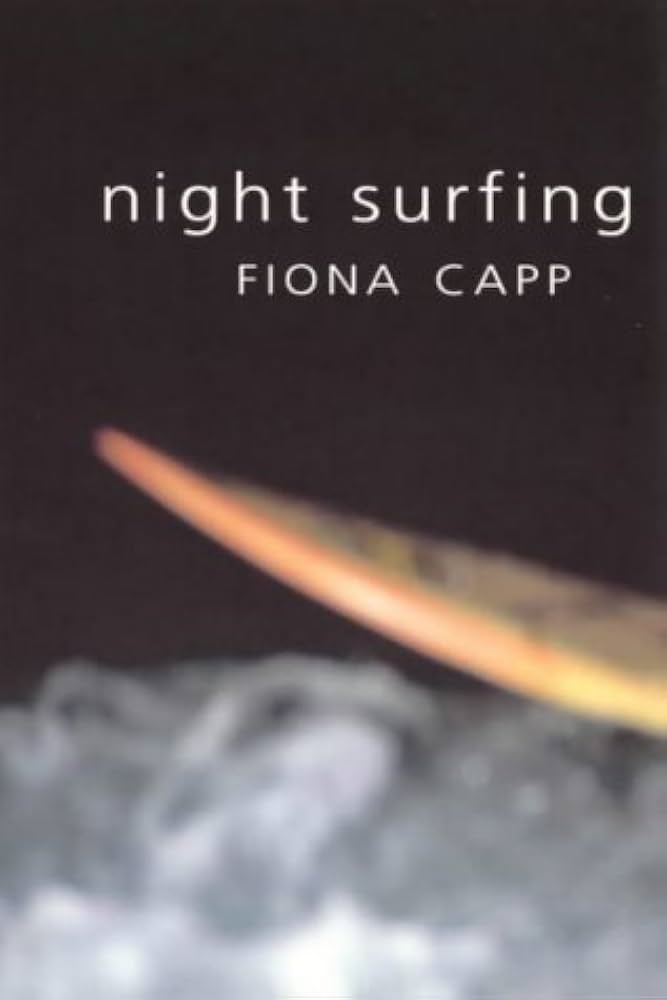
-
Book 1 Cover (800 x 1200)

- Book 2 Title Dirt
- Book 2 Author Catherine Ford
- Book 2 Biblio Text, $14.95 pb, 186 pp
- Book 2 Author Type Author
-
Book 2 Cover Small (400 x 600)

-
Book 2 Cover (800 x 1200)

- Display Review Rating No
J.R. Carroll reviews ‘White Guard’ by David Clunies-Ross Mandarin, and ‘A Good Time To Die’ by James Tatham
Written by J.R. CarrollDavid Clunies-Ross came under notice last year with Springboard, a darkly intriguing thriller about power, corruption and murder in Hong Kong at a nervous time in the colony’s history, with the Chinese takeover looming. In White Guard he seems to have used the same ingredients to assemble a similar scenario about Australia on the brink of becoming a republic as the year 2000 approaches. Domestically, the country’s politics are in disarray, bringing to mind the constitutional crisis of 1975. Couldn’t happen again, could it? Simultaneously, superpowers are competing in a deadly game of brinkmanship that shows up the threat to this country’s very existence in the form of US communications bases at Pine Gap, Nurrungar and the North West Cape – But Skinner’s position is clearly untenable: he has put the US offside by threatening not to renew leases for its tracking bases, right on the eve of a major joint military exercise in the outback; the Opposition is hugely popular with voters and Skinner has a sex scandal hanging over his head which will destroy him if it gets in the papers. Something’s got to give, but Skinner’s determined to hold on to power no matter what, as politicians invariably are for some reason.
Additional Info
- Free Article No
- Contents Category Fiction
- Review Article Yes
- Show Author Link Yes
- Show Byline Yes
- Article Title Clunies-Ross' political thriller
- Online Only No
-
Custom Highlight Text
David Clunies-Ross came under notice last year with Springboard, a darkly intriguing thriller about power, corruption and murder in Hong Kong at a nervous time in the colony’s history, with the Chinese takeover looming. In White Guard he seems to have used the same ingredients to assemble a similar scenario about Australia on the brink of becoming a republic as the year 2000 approaches. Domestically, the country’s politics are in disarray, bringing to mind the constitutional crisis of 1975. Couldn’t happen again, could it? Simultaneously, superpowers are competing in a deadly game of brinkmanship that shows up the threat to this country’s very existence in the form of US communications bases at Pine Gap, Nurrungar and the North West Cape – But Skinner’s position is clearly untenable: he has put the US offside by threatening not to renew leases for its tracking bases, right on the eve of a major joint military exercise in the outback; the Opposition is hugely popular with voters and Skinner has a sex scandal hanging over his head which will destroy him if it gets in the papers. Something’s got to give, but Skinner’s determined to hold on to power no matter what, as politicians invariably are for some reason.
- Book 1 Title White Guard
- Book Author David Clunies-Ross
- Book 1 Biblio Mandarin, $13.95 pb, 347 pp
- Book 1 Author Type Author
-
Book 1 Cover Small (400 x 600)
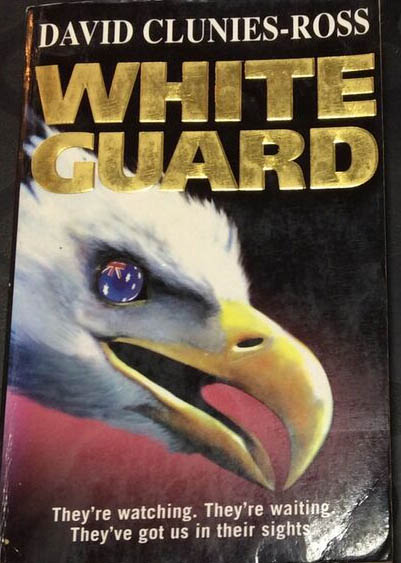
-
Book 1 Cover (800 x 1200)

- Book 2 Title A Good Time To Die
- Book 2 Author James Tatham
- Book 2 Biblio Pan $12.95 pb, 473 pp
- Book 2 Author Type Author
-
Book 2 Cover Small (400 x 600)
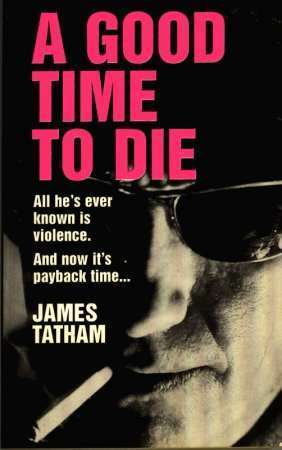
-
Book 2 Cover (800 x 1200)

- Display Review Rating No
Tina Muncaster reviews ‘Love Takes You Home’ by Julie Capaldo and ‘Eating Out and Other Stories’ by Natalie Scott
Written by Tina MuncasterFact or fiction, cookbook or novel, the recipe is a unique discourse, embedded within other discourses, with its own narrative relationships with those discourses. The giving of a recipe is important, as is the sharing or, indeed, the unauthorised acquisition. The author of the recipe is equally important, as is the response elicited by the author for that which is desired. It is a social exchange, above all; some would say one that is exclusively feminine, but not necessarily so for Julie Capaldo in her first novel, Love Takes You Home.
Additional Info
- Free Article No
- Contents Category Fiction
- Review Article Yes
- Show Author Link Yes
- Show Byline Yes
- Article Title Edges Melt Away
- Online Only No
-
Custom Highlight Text
Fact or fiction, cookbook or novel, the recipe is a unique discourse, embedded within other discourses, with its own narrative relationships with those discourses. The giving of a recipe is important, as is the sharing or, indeed, the unauthorised acquisition. The author of the recipe is equally important, as is the response elicited by the author for that which is desired. It is a social exchange, above all; some would say one that is exclusively feminine, but not necessarily so for Julie Capaldo in her first novel, Love Takes You Home.
- Book 1 Title Love Takes You Home
- Book Author Julie Capaldo
- Book 1 Biblio Reed Books, $14.95 pb, 240 pp
- Book 1 Author Type Author
-
Book 1 Cover Small (400 x 600)
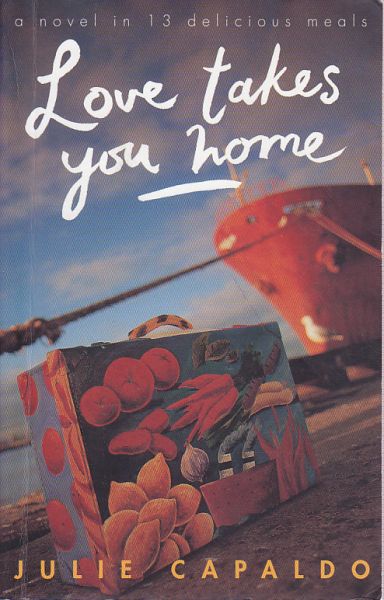
-
Book 1 Cover (800 x 1200)

- Display Review Rating No
Last year, two memoirs were published in Melbourne. Abraham Biderman’s The World of my Past and Mark Verstandig’s I rest my case should be read together and alongside Roman Visniac’s photographic record, A Vanished World. As intricate depictions of Polish Jewish life before the Holocaust and as intimate memorials to family and friends, they are monuments to the persistence of memory. But they also have an importance beyond that of individual recollections because of the contrasting insights they offer into the paths to, and resistance against, genocide in rural and urban Poland. Birdman, a survivor of the Lodz ghetto in a city once home to some 250,000 Jews, was incarcerated in a series of concentration camps before his ultimate release from Bergen-Belsen. Verstandig is one of the few thousand Jews who survived in hiding in the Polish countryside, which makes his account a relatively rare and important historic record.
Additional Info
- Free Article No
- Contents Category Biography
- Review Article Yes
- Show Author Link Yes
- Show Byline Yes
- Article Title Unimaginable lives
- Online Only No
-
Custom Highlight Text
Last year, two memoirs were published in Melbourne. Abraham Biderman’s The World of my Past and Mark Verstandig’s I rest my case should be read together and alongside Roman Visniac’s photographic record, A Vanished World. As intricate depictions of Polish Jewish life before the Holocaust and as intimate memorials to family and friends, they are monuments to the persistence of memory. But they also have an importance beyond that of individual recollections because of the contrasting insights they offer into the paths to, and resistance against, genocide in rural and urban Poland. Birdman, a survivor of the Lodz ghetto in a city once home to some 250,000 Jews, was incarcerated in a series of concentration camps before his ultimate release from Bergen-Belsen. Verstandig is one of the few thousand Jews who survived in hiding in the Polish countryside, which makes his account a relatively rare and important historic record.
- Book 1 Title I rest my case
- Book Author Mark Verstandig
- Book 1 Biblio Saga Press, $16.95 pb, 290 pp
- Book 1 Author Type Author
-
Book 1 Cover Small (400 x 600)
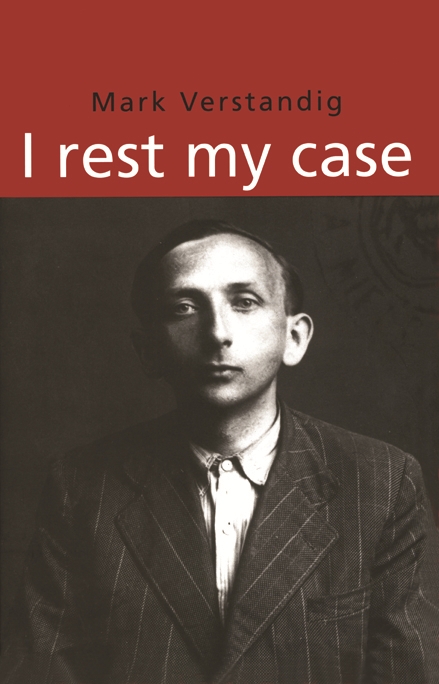
-
Book 1 Cover (800 x 1200)

- Display Review Rating No
Is it only reviewers who read literary magazines through as if they were books while most people dip into them? In the hope that a theme for each issue would hold the attention of readers RePublica this time has centred on Gang.
Additional Info
- Free Article No
- Contents Category Short Stories
- Review Article Yes
- Show Author Link Yes
- Show Byline Yes
- Article Title Our Gang
- Online Only No
-
Custom Highlight Text
Is it only reviewers who read literary magazines through as if they were books while most people dip into them? In the hope that a theme for each issue would hold the attention of readers RePublica this time has centred on Gang.
- Book 1 Title RePublica
- Book 1 Subtitle Gang 4
- Book Author George Papaellinas
- Book 1 Biblio Angus & Robertson, $l7.95 pb, 218pp
- Book 1 Author Type Editor
-
Book 1 Cover Small (400 x 600)
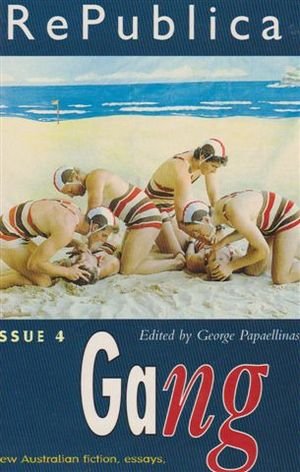
-
Book 1 Cover (800 x 1200)

- Display Review Rating No
More...
In an interview in December 1995, author Christobel Mattingley said that ‘from the beginning’ she felt ‘that writing was my way of giving something back, helping other people to grow and expand and make the world a better place’. Her first book, No Gun for Asmir, about Bosnian refugee child Asmir and his family, had a remarkable effect worldwide, both emotionally and practically. The book was used by many people to exert pressure on various bureaucracies to allow Muris, Asmir’s father, to leave Bosnia. Now we have the story of Muris himself, in Escape from Sarajevo – a book Christobel Mattingley has dedicated in part ‘to all who teach children to make peace’.
Additional Info
- Free Article No
- Contents Category Non-fiction
- Review Article Yes
- Show Author Link Yes
- Show Byline Yes
- Article Title Dedicated to Peace
- Online Only No
-
Custom Highlight Text
In an interview in December 1995, author Christobel Mattingley said that ‘from the beginning’ she felt ‘that writing was my way of giving something back, helping other people to grow and expand and make the world a better place’. Her first book, No Gun for Asmir, about Bosnian refugee child Asmir and his family, had a remarkable effect worldwide, both emotionally and practically. The book was used by many people to exert pressure on various bureaucracies to allow Muris, Asmir’s father, to leave Bosnia. Now we have the story of Muris himself, in Escape from Sarajevo – a book Christobel Mattingley has dedicated in part ‘to all who teach children to make peace’.
- Book 1 Title Escape from Sarajevo
- Book Author Christobel Mattingley
- Book 1 Biblio Puffin Books, $11.95 pb, 266 pp
- Book 1 Author Type Author
-
Book 1 Cover Small (400 x 600)
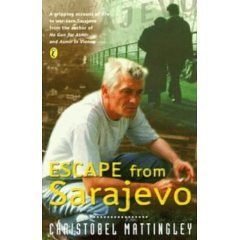
-
Book 1 Cover (800 x 1200)

- Display Review Rating No
Bron Nicholls reviews ‘Ready or Not’ by Mark Macleod and ‘Hide and Seek: Stories About Being Young And Gay/Lesbian’ by Jenny Pausacker
Written by Bron Nicholls‘Stories of Young Adult Sexuality’ and ‘Stories about being Young and Gay/Lesbian’ are the respective subtitles of these two bumper anthologies, coming out together in a joint marketing venture. ‘Not rivals but conspirators.’ writes Mark Macleod in the press release.
Additional Info
- Free Article No
- Contents Category Young Adult Fiction
- Review Article Yes
- Show Author Link Yes
- Show Byline Yes
- Article Title Coming Out
- Article Subtitle Ready or Not
- Online Only No
-
Custom Highlight Text
‘Stories of Young Adult Sexuality’ and ‘Stories about being Young and Gay/Lesbian’ are the respective subtitles of these two bumper anthologies, coming out together in a joint marketing venture. ‘Not rivals but conspirators.’ writes Mark Macleod in the press release.
- Book 1 Title Ready or Not
- Book Author Mark Macleod
- Book 1 Biblio Random House, $14.95 pb, 308 pp
- Book 1 Author Type Editor
-
Book 1 Cover Small (400 x 600)
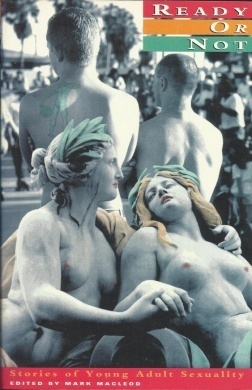
-
Book 1 Cover (800 x 1200)

- Book 2 Title Hide and Seek
- Book 2 Subtitle Stories About Being Young and Gay/Lesbian
- Book 2 Author Jenny Pausacker
- Book 2 Biblio Reed Books, $14.95 pb, 251 pp
- Book 2 Author Type Editor
-
Book 2 Cover Small (400 x 600)
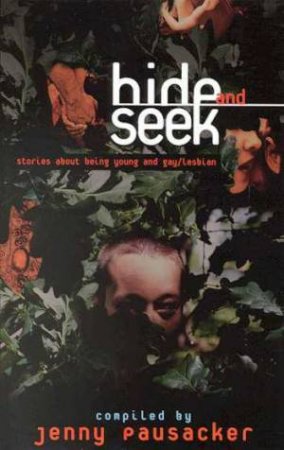
-
Book 2 Cover (800 x 1200)

- Display Review Rating No
David McCooey reviews 'Mermaid' by Alan Gould and 'The Majestic Rollerink' By Heather Cam
Written by David McCooey‘Nothing odd will do long’, said Johnson (that great friend of reviewers). If we begin by positing Aland Gould as an odd poet (that is, more than merely eccentric or self-conscious), then whether Johnson is correct about oddness depends on the second half of his observation: ‘Tristram Shandy did not last’. No doubt ABR readers smile at such a sentiment; but if so, then the question becomes whether or not Gould is odd enough.
By some reckonings, Gould has moved away from the port of oddity towards accessibility (the blurb implies this). Gould’s seven collections of verse, four works of fiction, and unknown number of model ships certainly show his interest in making (he is, after all, a poet), and his continued use of stanzaic verse, rhyme and so on is handled with increasing skill and flexibility. It is, of course, not this that makes Mermaid odd or even a little difficult. Any inaccessibility emanates from an almost ‘Jamesian’ manner (another oddity which did not last) in which the poems rigorously fail to give up what it is they hint at offering. ‘Sea Ballad’ suggests this:
Additional Info
- Free Article No
- Contents Category Poetry
- Review Article Yes
- Show Author Link Yes
- Show Byline Yes
- Article Title Port of Oddity
- Online Only No
-
Custom Highlight Text
‘Nothing odd will do long’, said Johnson (that great friend of reviewers). If we begin by positing Aland Gould as an odd poet (that is, more than merely eccentric or self-conscious), then whether Johnson is correct about oddness depends on the second half of his observation: ‘Tristram Shandy did not last’. No doubt ABR readers smile at such a sentiment; but if so, then the question becomes whether or not Gould is odd enough.
- Book 1 Title Mermaid
- Book Author Alan Gould
- Book 1 Biblio Heinemann, $16.95 pb, 77 pp
- Book 1 Author Type Author
-
Book 1 Cover Small (400 x 600)

- Book 2 Title The Majestic Rollerink
- Book 2 Author Heather Cam
- Book 2 Biblio Heinemann, $16.95 pb, 85 pp
- Book 2 Author Type Author
-
Book 2 Cover Small (400 x 600)
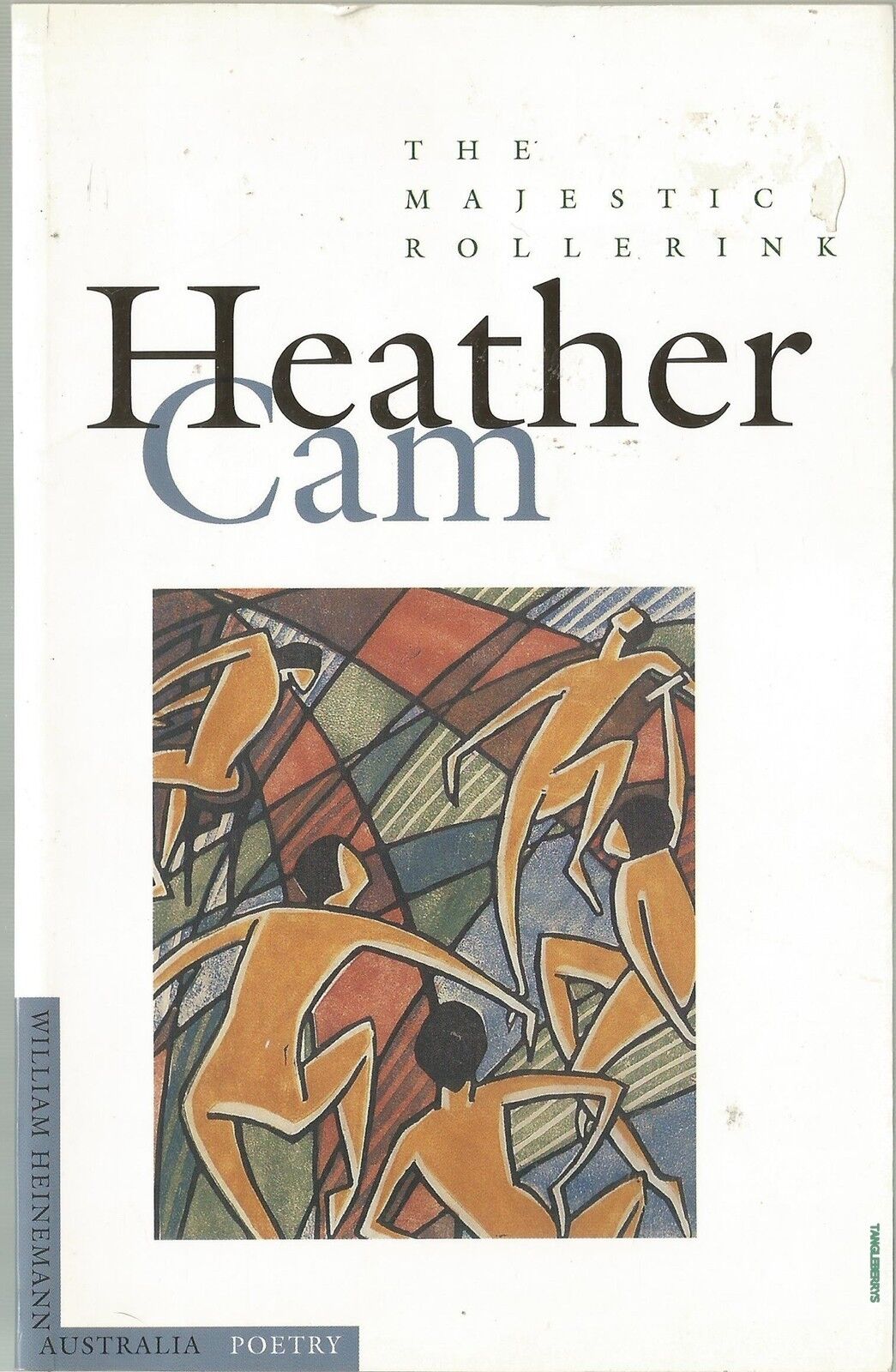
- Display Review Rating No
Michael McGirr reviews 'Making it National: Nationalism and Australian Popular Culture' by Graeme Turner
Written by Michael McGirrIt was during the writers’ week of the Adelaide Festival in 1992 that I first heard the so-called Australian sense of humour described as ‘Slavic’. This intrigued me at the time; now it troubles me. That week in March 1992 turned out to be the one during which sharp lines were finally drawn in Sarajevo and the attack on Bosanski Brod signalled the outbreak of war in Bosnia. Although it is difficult to weigh the significance of such events to take much notice, the least you can say is that it was a bad week for the whole idea of nationalism.
On two separate occasions, both the parents of Slobodan Milosevic committed suicide. It is impossible to gauge of course the extent to which his drive to create and control a Serbian empire has been making up for fundamental deficiencies in his personal life. Psychological explanations of history are notoriously slippery. But it is curious that the only will able to resist Milosevic in six years has been that of Radovan Karadzic, the leader of the Bosnian Serbs. Karadzic is not a professional soldier. He is a psychologist. A bleak view of history can see national identities being shanghaied into the working out of personal agendas.
Additional Info
- Free Article No
- Contents Category Cultural Studies
- Review Article Yes
- Show Author Link Yes
- Show Byline Yes
- Article Title A Kitbag of Popular Culture
- Online Only No
-
Custom Highlight Text
It was during the writers’ week of the Adelaide Festival in 1992 that I first heard the so-called Australian sense of humour described as ‘Slavic’. This intrigued me at the time; now it troubles me. That week in March 1992 turned out to be the one during which sharp lines were finally drawn in Sarajevo and the attack on Bosanski Brod signalled the outbreak of war in Bosnia. Although it is difficult to weigh the significance of such events to take much notice, the least you can say is that it was a bad week for the whole idea of nationalism.
- Book 1 Title Making it National
- Book 1 Subtitle Nationalism and Australian Popular Culture
- Book Author Graeme Turner
- Book 1 Biblio Allen & Unwin, $19.95 pb, 189 pp
- Book 1 Author Type Author
-
Book 1 Cover Small (400 x 600)
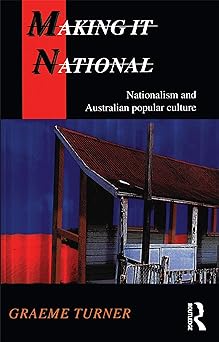
- Display Review Rating No






